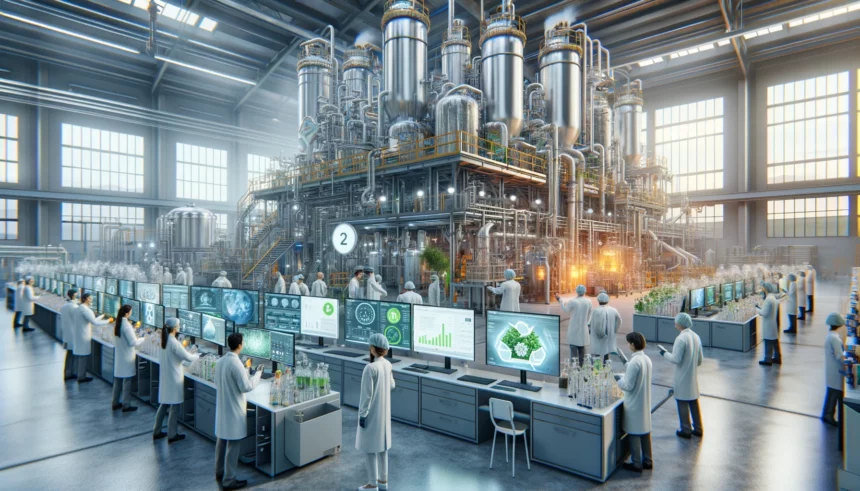Tackling the Plastic Problem
Plastic waste is a huge issue in Europe, with 18.5 million tonnes generated each year. Sadly, about 70% of this waste isn’t recycled due to various technical and economic reasons. Instead, much of it ends up in landfills (27%) or is burned (42%). This not only harms the environment but also affects public perception of waste management and policy efforts.
The iCAREPLAST Project: A New Hope for Plastic Waste
To address these challenges, the EU-funded iCAREPLAST project has developed a groundbreaking method to recycle and recover plastic waste. This method combines pyrolysis, catalytic treatment, and membrane technologies to transform non-recyclable plastic into valuable chemicals like aromatics. These chemicals are essential for producing high-quality polymers and can be used in various industrial sectors.
Key Benefits:
- Environmental Impact: Diverts plastic waste from landfills and incineration.
- Economic Opportunity: Generates income from by-products such as charcoal, CO2, and various hydrocarbons.
- Sustainability: Supports economic and environmental sustainability.
How Does It Work?
The project focuses on validating critical technologies at every stage, from pre-treating waste plastic to pyrolysis, catalytic treatment, and membrane molecular separation. They also developed advanced AI control systems for each processing unit and the overall plant operation.
Major Achievements:
- Industrial Testing: Real-world tests were conducted at Urbaser facilities, using actual plastic waste to validate the scalability and feasibility of the developed technologies.
- Oxy-Combustion System: This novel system uses solid-oxide cells to produce pure oxygen for oxidizing pyrolysis gases while generating electricity and a high-purity CO2 stream.
- Techno-Economic and Life Cycle Analysis: Provided valuable insights into the market acceptance and sustainability of the iCAREPLAST process.
- Integration of Life Cycle Engineering Indicators: Developed a tool to integrate these indicators into real-time process control, improving monitoring and optimization of sustainability and productivity.
Moving Beyond Traditional Recycling Methods
Traditional mechanical recycling methods often struggle with contamination and economic challenges. In contrast, iCAREPLAST uses innovative thermochemical techniques like pyrolysis and catalytic transformation to convert non-recyclable plastic waste into high-value chemicals. This approach significantly reduces the carbon footprint.
Promising Results and Future Impact
The project aims to close the material loop by transforming waste into valuable products and integrating carbon capture technologies to enhance environmental sustainability.
Expected Outcomes:
- Increased Efficiency: A 12% increase in pyrolysis liquid yield and a 45% reduction in energy requirements.
- Reduced Waste: A significant reduction in plastic residue production by 95%.
- Economic Gains: Potential boost in economic yields by up to 200%.
- Lower Emissions: A substantial decrease in greenhouse gas emissions by 58% to 76%, achieving below net-zero levels when considering secondary product substitution.
Conclusion
The iCAREPLAST project not only improves the economic viability of plastic recycling but also reduces reliance on primary fossil resources. It supports European waste recycling targets and spreads knowledge through educational activities, helping to nurture future talent in the field.
By leveraging advanced chemical technology, iCAREPLAST is paving the way for a more sustainable and economically viable approach to managing plastic waste. This initiative represents a significant step forward in addressing one of the most pressing environmental challenges of our time.
















